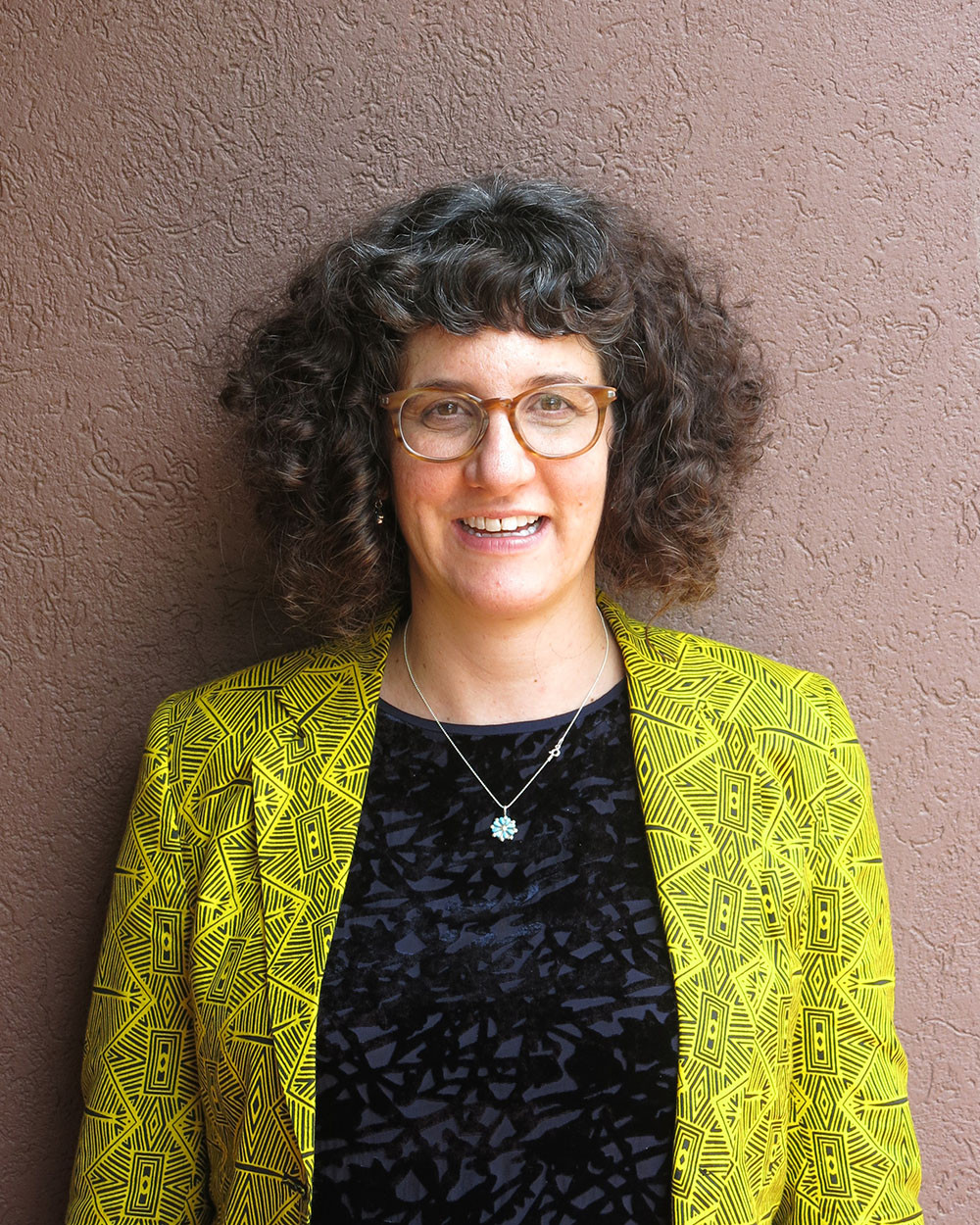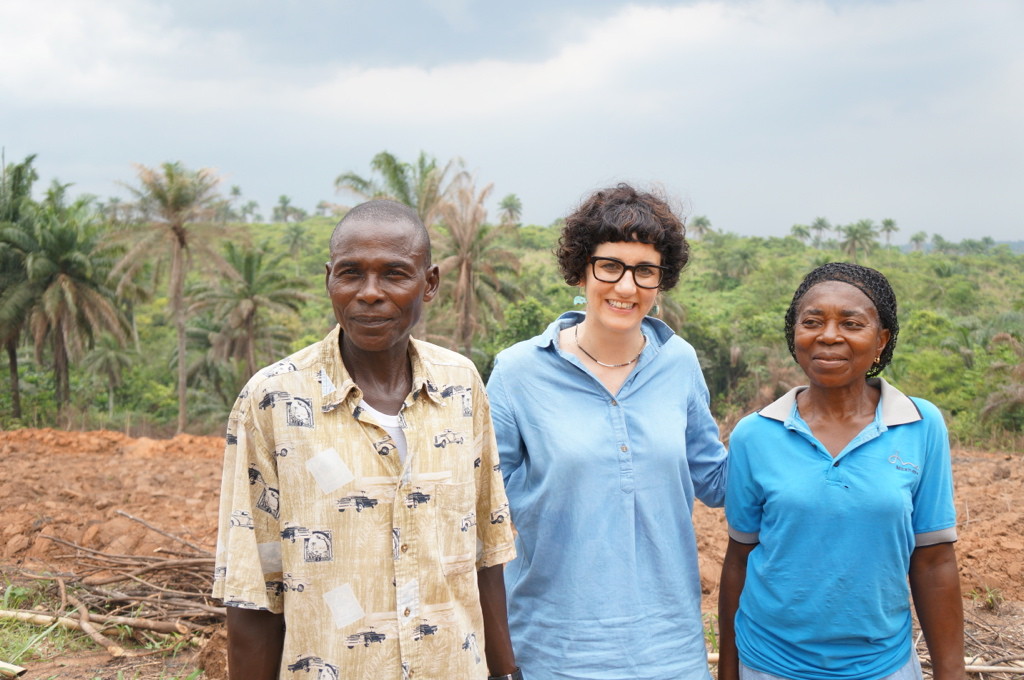Dr. Hale Ann Tufan
TURKEY
Dr. Hale Ann Tufan, Principal Investigator of the Gender-responsive Researchers Equipped for Agricultural Transformation (GREAT) project, has been named the 2019 recipient of the Norman Borlaug Award for Field Research and Application, Endowed by the Rockefeller Foundation. She is recognized for championing the incorporation of gender-supportive activities within the global agricultural research community, working across disciplines to ensure women farmers and scientists are fairly represented in the lab, in the field and at the table.
Though now one of the most powerful voices for gender in agricultural research, Tufan’s career did not start out with that as her focus. Born and raised in Turkey, she went to Colorado State University for her bachelor’s degree in biochemistry and chemistry, then returned to Istanbul to earn a master’s in molecular biology and genetics from Bogazici University. After receiving her PhD in biology from John Innes Centre, Norwich, UK, she joined the CIMMYT International Winter Wheat Improvement Program in Turkey as an assistant wheat breeder.
In the course of her education and early career, Tufan realized that it was not enough to simply release improved crop varieties into the food production chain because so many of those varieties were not adopted by the farmers they were meant to target. Through talking with farmers, she discovered that one of the biggest reasons for this was that researchers were missing the importance of taking gender into account in plant breeding, and as a result were ignoring the needs of a large number of farmers. Women account for nearly half of the world’s smallholder farmers and produce 70% of Africa’s food. Without first understanding all farmers’ needs, the characteristics they wanted, and who was planting, harvesting and processing the crops, plant breeders too often missed the mark in the varieties they developed.
In 2012, Tufan took her first step toward addressing this need when she joined Cornell University’s International Programs in the College of Agriculture and Life Sciences to manage the Next Generation Cassava Breeding (NextGen Cassava) project. Through NextGen Cassava, she worked across multiple partner institutions in Nigeria, Uganda, Tanzania, Brazil, Colombia, and the U.S. to design and implement a “Gender-Responsive Cassava Breeding” initiative to reach women smallholder farmers. This project is leading to better understanding of gender needs and impacts in farming communities by listening to stakeholders, and is working with national agricultural research centers in Africa to mainstream and prioritize end-user preferences in breeding programs.
In 2015, Tufan secured a five-year, $5 million grant from the Bill & Melinda Gates Foundation for her brainchild, Gender-responsive Researchers Equipped for Agricultural Transformation (GREAT). Tufan’s GREAT is a training project that builds the capacity of agricultural scientists in sub-Saharan Africa to conduct research that takes into consideration socio-cultural contexts so as to better address the needs and circumstances of both men and women farmers. Tufan pushes plant breeders to adopt a market-based approach and think of end-users as clients, which will lead to higher adoption rates of new varieties.
Though researchers are increasingly expected to design projects that deliver equitable outcomes for men and women, very limited gender training opportunities exist for agricultural researchers. Under Tufan’s leadership, GREAT brings together social and agricultural scientists to design and deliver courses in the practice of gender-responsive research to plant breeders, which is leading to improved outcomes for women smallholder farmers, entrepreneurs and farmer organizations. As of today, researchers from 18 countries and 22 institutions have been trained in one of GREAT’s courses. Through GREAT, Tufan also led the creation of a Center of Excellence for gender and agricultural research at Makerere University in Uganda.
In 2018, Tufan took on a new role in NextGen Cassava, heading up the Survey Division with the aim of identifying traits preferred by farmers to ensure that NextGen Cassava breeding is demand-driven and inclusive. Tufan also leads a team in the Breeding RTB Products for End User Preferences (RTBFoods) project, working across six African countries to create an evidence base for root, tuber, and banana product preferences by gender and other social factors that can be used by breeders to identify and prioritize traits in their breeding programs.
Tufan also demonstrates her commitment to advancing gender sensitivity through her work with the Steering Committee of CGIAR’s Gender & Breeding Initiative (GBI), organizing workshops and a symposium on future directions for gender and plant breeding for GBI members from Africa, Asia, Latin America, and Europe. She displays her leadership as director of Cornell’s Advancing Women in Agriculture through Research and Education (AWARE), initiating the first school-wide gender and diversity audit of the School of Integrative Plant Sciences. She shares her passion with the graduate students she mentors and advises, especially African women students.
Tufan’s work is changing how agricultural research is carried out around the world, and changing how the research community views gender. Tufan’s enthusiasm and results-driven approach have led her to develop new training programs that will benefit smallholder farmers, and importantly, that incorporate women farmers into the research value chain.
As a mother of two and the breadwinner of her family, Hale knows that empowering women results in “more food on the plate” as Dr. Norman Borlaug would have expressed it. As Dr. Borlaug went beyond breeding to work across disciplines and nations to “take it to the farmer,” so too has Tufan advanced well beyond her professional field of molecular biology through constantly seeking to address barriers to women’s success and well-being and shape new ways of thinking about agricultural science to create a more equitable society.




